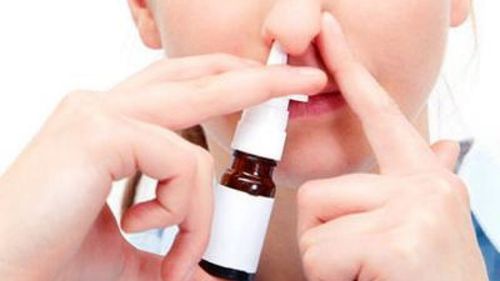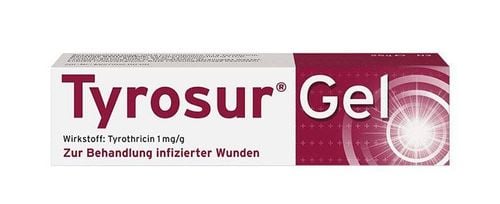This is an automatically translated article.
Ebastine 10 is a 2nd generation antihistamine commonly used to treat seasonal or chronic allergic rhinitis. Let's find out the indications of Ebastin 10 through the article below.
1. What is Ebastine 10?
Generic name (Active ingredient): Ebastine (Ebastin)
Drug type: Antihistamine.
Drug form and strength:
Film-coated tablets 10 mg, 20 mg.
10 mg oral dispersible tablets.
5 mg/5 mL oral suspension.
2. Indications of the drug Ebastin 10
Ebastine is indicated for use in the following cases:
Allergic rhinitis (seasonal or year round), with or without allergic conjunctivitis. Chronic idiopathic urticaria. Reduce symptoms of atopic dermatitis. Dosage - How to use Ebastine
Adults:
Allergy due to histamine: 10mg/day. Allergic rhinitis or chronic idiopathic urticaria: 10 mg/day. Seasonal allergic rhinitis: 20 mg/day. Children:
Children over 12 years: The same dose as adults.
Do not give the medicine to children under 12 years old.
Other subjects:
Severe liver failure: Maximum dose 10 mg/day.
3. Side effects of Ebastine 10
Common:
Headache Somnolence Dry mouth Uncommon:
Insomnia Dizziness Sore throat Nosebleed nose Nausea Nausea Abdominal pain Indigestion Asthenia Rare:
Anxiety Sensory disturbance Tachycardia Palpitations Vomiting Abnormal liver function tests Rash Urticaria Eczema Menstrual pain Edema
4. Notes when using Ebastine 10
Contraindications: Hypersensitivity to Ebastine or any component of the drug.
General note:
Severe liver failure.
Use caution when using the drug in patients with the following conditions: prolonged QT syndrome, hypokalemia, being treated with drugs that increase the QT interval or inhibit the CYP3A4 isoenzyme (azole group, macrolide group). Use with caution in patients with mild to moderate hepatic impairment and renal impairment. The safety and effectiveness of Ebastine for children under 12 years of age have not been established. For pregnant women
Do not use Ebastine for women who are pregnant. Use only when the benefit to the mother outweighs the potential risk to the fetus.
For lactating women
Do not use Ebastine for women who are breastfeeding.
When driving and operating machinery
The drug can cause drowsiness, so do not use for driving and operating machinery.
5. Overdose, missed dose of Ebastine and handling
Overdose and Toxicity: Ebastine overdose symptoms have not been studied.
Treatment in case of overdose: There is no specific antidote for Ebastine. In case of overdose, gastric lavage, vital function monitoring including electrocardiogram, and symptomatic treatment should be performed.
Missed dose and treatment: If you forget to take a dose, take it as soon as you remember. However, if it is almost time for your next dose, skip the missed dose and take your next dose at the scheduled time. Do not take twice the prescribed dose.
6. Drug interactions
Interactions with other drugs
Concomitant use of azole antifungals (Ketoconazole) or macrolide antibiotics (Erythromycin, Clarithromycin...), which are inhibitors of the CYP3A4 enzyme, with Ebastine may increase Ebastine concentrations. plasma and prolong the QT interval. Concomitant use of Ebastine with antiarrhythmic drugs may increase the risk of tachycardia. The sedative effect of alcohol and the drug Diazepam is increased when co-administered with Ebastine. Food Interactions
Co-administration of Ebastine with food may increase the bioavailability of the drug.
Drug interactions can change how the drug works or increase the effect of side effects. This document does not cover all possible drug interactions. Make a list of all the medicines you are taking (including prescription, nonprescription and dietary supplements) and show them to your doctor or pharmacist.
Please dial HOTLINE for more information or register for an appointment HERE. Download MyVinmec app to make appointments faster and to manage your bookings easily.













